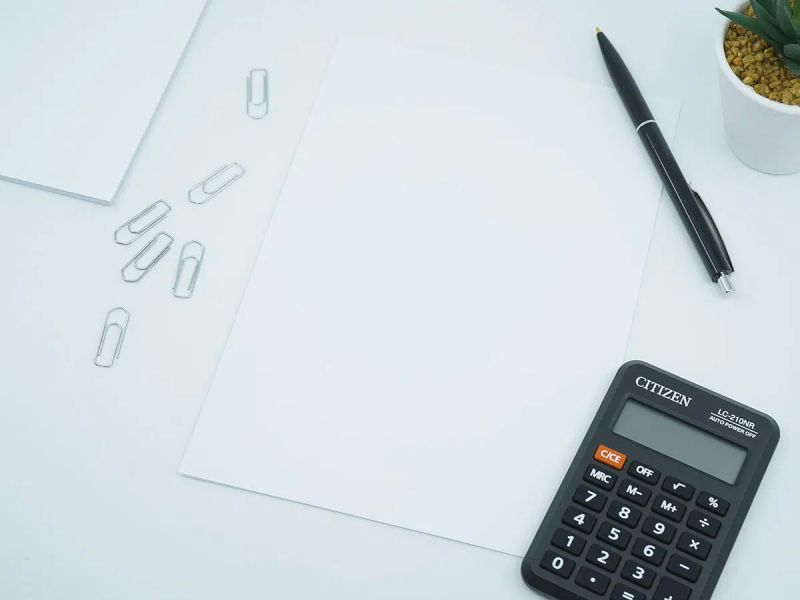Expenses can vary from person to person based on individual circumstances, lifestyle choices, and financial priorities but you can curtail your expenses. Some of the many advantages of tracking your expenses are:

Expenses are the money spent on various items, services, or activities to meet your needs or desires. They can be classified into different types based on their nature and purpose.
Expenses can vary from person to person based on individual circumstances, lifestyle choices, and financial priorities.
Read Also: How To Set Financial Goals And Achieve Them
Common Types of Expenses

Here are some common types of expenses:
1. Fixed Expenses
These are regular and predictable expenses that remain relatively constant monthly. Examples include rent or mortgage payments, loan repayments, insurance premiums, subscription fees, and utility bills (e.g., electricity, water, internet, and phone).
2. Variable Expenses
Variable expenses are flexible and can vary in amount from month to month. They depend on your choices and can be adjusted based on your needs or preferences.
Examples include groceries, dining out, entertainment (movies, concerts), clothing, personal care, hobbies, and transportation costs (fuel, public transportation, or ride-sharing).
3. Discretionary Expenses
These are non-essential expenses not necessarily required for basic needs. They are more related to personal preferences and lifestyle choices. Examples include vacations, leisure activities, gifts, hobbies, dining at restaurants, and entertainment beyond basic needs.
4. Debt Payments
This category includes payments towards debts, such as personal loans, credit card bills, student loans, or car loans. Debt payments often include both the principal amount borrowed and any interest charged.
5. Healthcare Expenses
Healthcare expenses encompass medical bills, prescription medications, health insurance premiums, dental care, vision care, and other out-of-pocket medical costs.
6. Education Expenses
These expenses cover tuition fees, textbooks, supplies, and other educational costs, such as certification courses or professional development programs.
7. Transportation Expenses
Transportation expenses include owning and maintaining a vehicle (car payments, insurance, fuel, maintenance, and repairs) and public transportation costs (bus fares, train tickets, or subway passes).
8. Household Expenses
Household expenses include groceries, cleaning supplies, home maintenance and repairs, furniture, appliances, and other essential items for your home.
9. Personal Care Expenses
Personal care expenses include toiletries, haircuts or salon services, skincare products, and personal grooming items.
10. Miscellaneous Expenses
This category covers small or infrequent expenses that don't fall into other specific categories, such as bank fees, pet care, charity donations, or small purchases.
Tracking your expenses means keeping a record of your money on various items and activities. It may involve journalizing your purchases, using budgeting apps or software, or maintaining spreadsheets.
While it may require effort and discipline, the benefits of tracking your expenses are numerous. They can significantly contribute to your financial well-being.
Also Read: The Importance Of Financial Planning For Your Future
Advantages of tracking your expenses

Tracking and categorizing expenses can provide valuable insights into your spending habits, helping you make informed decisions and prioritize your financial goals.
Some of the many advantages of tracking your expenses are:
1. Financial Awareness
By tracking your expenses, you clearly understand where your money is going. It gives you a comprehensive overview of your spending patterns. It helps you note areas where you may need to spend more or can cut back. This awareness empowers you to make informed financial decisions and take control of your money.
2. Budgeting and Goal Setting
Expense tracking is an integral part of budgeting. It allows you to establish a realistic budget based on your income and expenses.
When you track your spending, you can allocate funds to different categories, such as housing, transportation, groceries, entertainment, and savings, according to your financial goals and priorities. This helps you reach your budget and work towards achieving your financial objectives.
3. Identifying Saving Opportunities
Monitoring your expenses reveals opportunities for saving money. By analyzing your spending habits, you can pinpoint areas where you can make adjustments or reduce unnecessary costs. This can lead to significant savings over time and enable you to allocate more funds towards savings or paying off debt.
4. Debt Management
Expense tracking is crucial in managing and reducing debt. It helps you understand your debt obligations, including interest rates, minimum payments, and overall debt balances.
By tracking your expenses and making a conscious effort to limit discretionary spending, you can free up more money for debt repayment, accelerating your progress toward debt-free.
5. Improved Financial Decision-Making
You gain valuable insights to inform your financial decision-making when you track your expenses. It allows you to evaluate the cost-effectiveness of your purchases, compare prices, and make informed choices about where to allocate your money.
This will make more effective and efficient use of your financial resources.
6. Personal Accountability
Tracking your expenses promotes personal accountability for your financial choices. It helps you be more mindful of your spending habits and encourages responsible economic behavior.
By tracking and reviewing your expenses regularly, you can hold yourself accountable for staying within your budget and progressing toward your financial goals.
7. Financial Goal Progress
Tracking your expenses allows you to monitor your progress toward achieving your financial goals. Whether saving for a home's down payment, funding education, or building an emergency fund, regularly reviewing your expenses helps you stay focused and motivated.
You can track your savings, identify gaps or challenges, and make necessary adjustments to keep on track with your goals.
8. Financial Discipline
Expense tracking promotes discipline in your spending habits. You become more conscious of your financial choices by actively monitoring your expenses. You are may make impulsive purchases.
9. Emergency Preparedness
Tracking your expenses helps you build an emergency fund. By consistently setting aside money for unexpected situations, you can better handle financial emergencies without resorting to debt or disrupting your financial stability.
10. Improved Cash Flow Management
Expense tracking enables you to manage your cash flow better. Understanding when and where your money is being spent can ensure sufficient funds are available for your essential expenses and financial obligations.
11. Enhanced Negotiating Power
When you track your expenses, you gain a deep understanding of your spending patterns and can use that knowledge to negotiate better deals. Whether negotiating lower interest rates on loans or getting better prices from service providers, you can leverage your expense-tracking insights to save money.
12. Reduced Financial Stress
Knowing where your money is going and controlling your finances can significantly reduce financial stress. By tracking your expenses, you can alleviate anxiety about overspending, accumulating debt, or not being able to meet your financial obligations.
13. Improved Decision-Making in Relationships
Expense tracking is particularly beneficial for couples or households sharing financial responsibilities. It fosters open communication about money, encourages joint decision-making, and helps build trust by promoting transparency and accountability.
14. Tax Planning
When tax season arrives, having a detailed record of your expenses can simplify filing your taxes. It makes it easier to identify potential deductions, claim eligible costs, and accurately report your financial information.
15. Financial Awareness for Children and Teens
Teaching children and teenagers the importance of tracking expenses from an early age helps them develop healthy financial habits. It instills an understanding of budgeting, encourages responsible spending, and promotes a long-term financial management perspective.
16. Opportunity for Financial Reflection and Improvement
Regularly tracking your expenses provides an opportunity for self-reflection and improvement. By reviewing your spending habits, you can identify unnecessary costs or areas where you can make adjustments, leading to ongoing financial growth.
17. Sense of Financial Freedom
Tracking your expenses gives you financial freedom. It enables you to deliberately determine how your money is spent, match your spending to your priorities and values, and work towards achieving long-term financial security and independence.
You can have a healthy money relationship, gain greater control over your financial situation, and achieve a more stable and fulfilling financial life.

